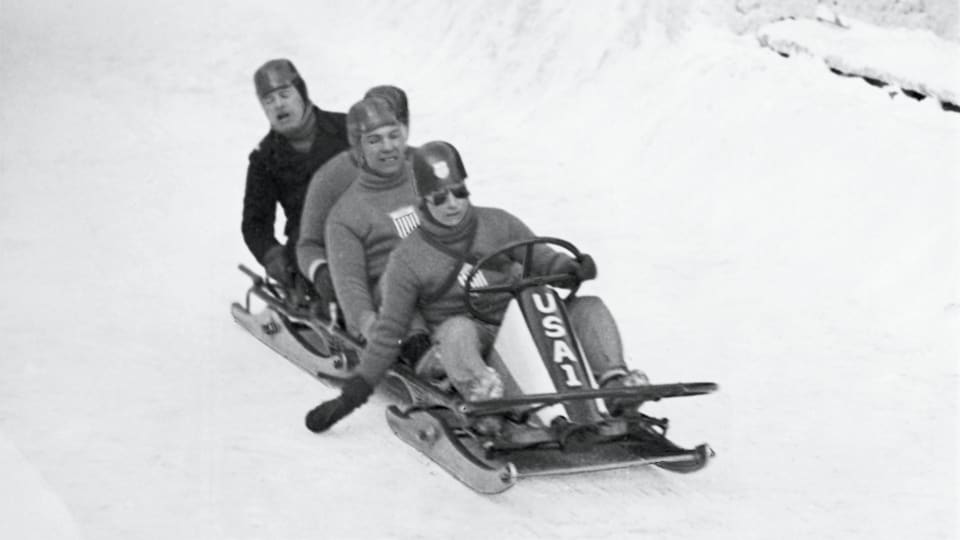
A lieutenant in the US army during the First World War, Eddie Eagan (USA) was a talented boxer, at one point one of the most feared light-heavyweights in the world, as demonstrated by his defeat of Sverre Sørsdal (NOR) at the 1920 Olympic Games in Antwerp (BEL), a result that landed him a gold medal. An equally brilliant student, he was awarded a scholarship to study at Oxford University (GBR), qualified as a lawyer and then competed at the Paris Games in 1924, but failed to get past the first round.
Well into his thirties as the Lake Placid Games approached, he responded to a call for help from his good friend, Jay O’Brien, whose four-man US bobsleigh team was on the lookout for a powerful athlete to make up the quartet spearheaded by pilot Billy Fiske, a gold medallist in the event in St. Moritz four years earlier. “You’ll never guess what – I’m in the US bob team!” Eagen is said to have told his wife, prior to travelling to Lake Placid with the intention of competing on 13 and 14 February, having never previously climbed into a bobsleigh.
The USA-1 bob, composed of Eagan, O’Brien, Fiske and Clifford Gray, recorded the fastest time of three of the first four runs, eventually winning with a two-second advantage over Henry Homburger’s USA-2 team. “Those descents will forever remain engraved in my memory,” said the ex-boxer. “They may have only taken two minutes, but it seemed like decades. I held on pretty tightly!”
Although a handful of versatile competitors have managed to clinch medals at the Summer and Winter Games in two different disciplines since 1932, such as Jacob Tullin Thams (ski jumping and sailing), Christa Luding (speed skating and track cycling), Clara Hughes (speed skating and road bicycle racing) and Lauryn Williams (athletics and bobsleigh), Eagan is the only athlete to earn two golds.
The American continued to practise law in New York, then served in the army again as a colonel during the Second World War. The 70-year-old died of a heart attack on 14 June 1967.
